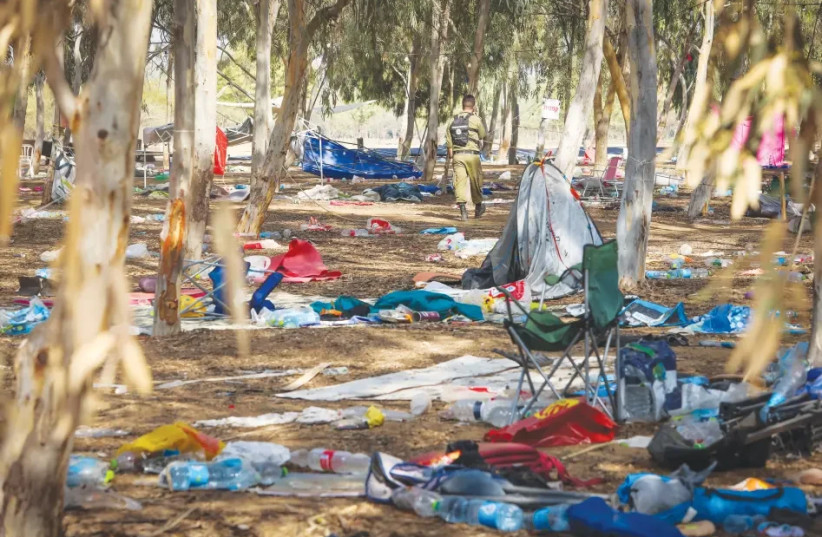The Israeli public has heightened levels of anxiety regarding sexual assault and safety post-October 7, according to a September survey published by The Geocartography Knowledge Group.
The survey was conducted among 520 respondents aged 18 and over by The Association of Rape Crisis Centers in Israel (ARCCI) and sampled individuals from both Jewish and Arab backgrounds. The survey also included responses from people who have self-reported sexual assault.
According to the survey, a majority of the public (93%) believe that hostages in Gaza are at risk of sexual harm, and most (73%) believe that this should affect negotiations for a hostage deal.
However, survey respondents with religious backgrounds were more likely than other groups to believe that the risk of sexual assault should not affect the deal more than other factors.
Meanwhile, in the Arab sector, about a third of those polled stated that they believed there is no risk of sexual harm to the hostages detained in Gaza.

Statistics vary by gender
Over a year after Hamas's massacres in southern Israel, anxiety regarding safety in public remains heightened, according to the survey.
The polling indicated that around half of the Israeli public does not feel safe in public spaces. Some 63% of female respondents reported not feeling safe, compared to 42% of men.
About a quarter of those surveyed do not feel safe even in private spaces. This was particularly the case among female respondents. The poll stated that this anxiety was a result of fear of a kidnapping scenario, physical assault, or death, with about a quarter fearing a sexual assault scenario.
Women, in general, have had more mental difficulties with higher rates of anxiousness, the ARCCI survey revealed. Nearly half of the female surveyors have reported feeling anxious following the reports of sexual violence within Gaza from October 7.
The after-effects of the sexual violence incidents that occurred on October 7 affected the daily conduct of Israelis, and female Israelis in particular. Some 47% of the women testified that they are more careful about locking their homes, and about 38% reported changing their behavior in public spaces. The survey further showed that 26% of women avoid going to certain places, the ARCCI reported.
Victims of sexual assault suffered particularly when hearing about the sexual violence that occurred on October 7.
Psychological effects were higher among sexual assault survivors. Over 50% reported feelings of anxiety, stress, and suspicion towards strangers, the survey showed.
